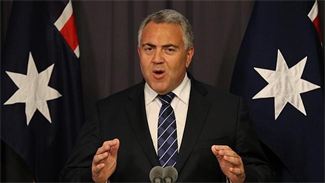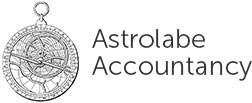The Small Business Budget 2015
 Treasurer Joe Hockey wants Australian small businesses to “have a go”, and has allocated $5.5 billion in concessions over the next four years to encourage small businesses to invest, to take on workers and to grow the economy.
Treasurer Joe Hockey wants Australian small businesses to “have a go”, and has allocated $5.5 billion in concessions over the next four years to encourage small businesses to invest, to take on workers and to grow the economy.
The New Small Business Concessions
The definition of a small business for the purpose of the new policies is one with a group turnover of less than $2 million.
Company Tax rate reduced to 28.5%:
From 1 July 2015 the tax rate for small business companies will reduce from 30% to 28.5%. However the tax rate for the purposes of franking credits will remain at 30%, so shareholders will not be taxed more on dividends.
5% Small Business tax discount:
Individuals who receive income from an unincorporated small business entity (sole proprietor, partnership or trust) will receive a 5% discount off the tax payable on that income, capped at $1,000 per individual per year.
Immediate Deduction for Capital Assets under $20,000:
Small businesses will be able to claim an immediate tax deduction for vehicles and equipment costing under $20,000 each, purchased from 13 May 2015 to 30 June 2017. The entire balance of the Small Business Entity may be written off if the balance falls below $20,000 during this period.
Immediate Deduction for Start-up Expenses:
At present, business start-up expenses such as professional advice and company formation costs must be written off over five years for tax purposes. Under this new concession the whole expense may be written off in the year it is incurred, starting from 1 July 2015.
Capital Gains Tax Roll-over Relief for Changes to Business Structure:
At present there is provision for Capital Gains Tax to be deferred when individuals restructure their business into a company. This new concession will extend CGT roll-over relief to all changes to a small business structure, such as from a company to a trust, from 1 July 2016.
Streamlined Business Registration Process:
The government will provide funding for the Tax Office and ASIC
to develop a single online portal for business and company registration, and to provide computer code so that software developers can build registration software. There is no time-frame announced for this portal, but considering that the bulk of the funds are budgeted for 2015-16 and 2016-17 it is not likely to be up and running before 2017.
FBT Exemption for Work-related Electronic Devices:
From 1 April 2016 small businesses will be able to provide employees with more than one electronic device for work purposes without these being subject to Fringe Benefits Tax. There is currently an exemption for electronic devices that perform substantially different functions, such as a smart phone and a laptop. The extended exemption will cover electronic devices that have similar functions, such as a laptop and a tablet.
Very few sources mentioned the following budget measure:
“Modernised” car deduction methods:
At present employees and unincorporated businesses have four available methods to claim work car expenses: the cents-per-kilometre method, the one-third-of-actual-expenses method, the twelve-percent-of-cost method and the logbook method. From 1 July 2015 the government will “modernise” (read “limit”) these tax deduction methods by removing the the one-third-of-actual-expenses and the twelve-percent-of-cost methods, and by limited the the cents-per-kilometre method to only 66 cents per kilometre (the current rate for cars under 1.6 litres — cars with larger engines could be claimed at 76 or 77 cents per kilometre). This is one change that will not help small businesses! It may be necessary now to keep a log book for a minimum of twelve weeks and to record car expenses separately for each work car in order to maximise car tax deductions.
Labor’s Budget Reply
In his budget reply speech, Opposition Leader Bill Shorten said that the government should “go further” and develop a plan to cut the small business company tax rate to 25%.
Assistant Treasurer Josh Frydenberg called on the Opposition to show how it would pay for this proposed tax cut. “This is Magic Pudding economics,” he said.
